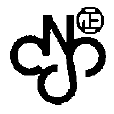The Taiwanese Ministry of Economic Affairs (MOEA) describes in the Commodity Inspection Act the assignment of an authority for the formulation of quality standards (Chinese National Standard, CNS) as well as the establishment of a system to control the quality of a variety of goods. Accordingly, products that have been inspected by the Bureau of Standards, Metrology and Inspection must be marked with the CNS mark (“CNS Mark”). This testing process is the BSMI certification.
BSMI certification covers a total of 539 goods (199 chemicals, 340 mechanical or electrical products, as of May 2021).
Depending on the safety risk, a product can be subjected to up to seven test modules, ranging from simple declarations of conformity, document checks, product tests or QM system tests to full-scale factory inspections by BSMI auditors. The first step is to apply for product certification, only then does the authority decide on the scope of testing.
The most important facts about BSMI certification
- Application forms
- Extract from the commercial register or other proof
- QMS certificates
- Test reports according to CNS standards, not older than 6 months
- Authorisation letter to local representativeInformation on the manufacturer:
- Organisational structure
- Factory layout
- Production flowchart
- Directions from the nearest airport
- Control plan (COP plan)
- Further documents may be required
- Application documents: 1-4 months depending on customer.
- Product testing in Taiwan: 1 month
- Certificate: 1-2 months
- Factory inspection, if applicable: 1-3 months after application (every three years)
- Product marking: depending on customer
- Taiwanese company required as representative (Authorised Representative). You can change at any time (we also offer this).
- Application costs: ~150 € + ~90 € per variant
- Test fees: from ~170 €
- Issuing fees: ~15-150 € depending on module
- travel expenses of the auditors, if applicable: ~2.500 €
- Audit fees, if applicable: ~250 € / day / auditor
- if applicable, audit support: ~1,200 €
- If applicable, travel expenses for audit facilitator: from ~1,000 €
- Consultancy fees: from ~1000 €
What is the BSMI certification for?
BSMI certification includes both mandatory and voluntary standards. There are thousands of standards in total, and at least 539 of them are mandatory, so a summary overview is difficult. Some common examples of these products are:
- Toys
- Stationery
- Textiles
- Tyres
- Flame retardant building materials
- Protective equipment
- Mechanical products
- Electronic products
- Children’s products
- Suitcases
- Sunglasses
- Plastic
- Wood
- Other chemical products
- Motors
The products listed above cannot be exported to Taiwan without BSMI certification and would be rejected by customs. Since certification takes several months, manufacturers of these products should start early.
What is the BSMI certification process?
As described above, the certification process can consist of up to seven different modules depending on the safety risk of the product. These modules are:
- Internal control module: Proof of internal quality assurance.
- Type testing module: Product tests according to Taiwanese CNS.
- Declaration of Conformity Module: Declaration that the product complies with CNS.
- QMS module: Evidence of certification according to CNS 12681 (ISO 9001).
- Production QM module: Evidence of certifications of the production chain of the product to be certified according to CNS 12681 (ISO 9001).
- Product QM module: Evidence of certification of the production as well as the product according to CNS 12681 (ISO 9001).
- Factory inspection module: Factory audit by BSMI.
A typical certification includes of the following:
- Module I: Submission of internal QMS documents.
- Module II: Product testing in Taiwan
- Module IV: Evidence of general quality certification.
- Marking with the CNS logo.
If the certification was successful, the product must be marked with the CNS logo:

Frequent mistakes
There are errors in the application documents
A lot of information has to be entered manually into the online registration system, so mistakes can easily happen. However, such errors can only be corrected afterwards at a charge.
Your authorised local agent does not cooperate
Your importer can often take over this task, but in some cases this does not work out properly for manufacturers. Then you need help from a qualified service provider.
The products do not comply with the standards
Taiwanese standards are very often based on international standards, especially IEC standards. Nevertheless, there are specific differences every now and then.
The products are not marked or are marked incorrectly
Each product must be marked according to the designs in the standards and this marking must also be registered with the VSCC. Deviations from the registered format are not allowed.
